Indonesia
Asman Gayo Mill
This is our very first Indonesian feature! It’s grown in the volcanic soils and rainforest-filled mountains of the Sumatra island. We’ve found flavours of frangipane, violet, and shortbread.
Well, this is quite something. It’s our first Indonesian coffee!
The Asman Gayo mill is located in the Pegasing district of Takengon, in the Aceh region north of the Sumatra island. This area is an incredible region for coffee production. Its geography is very diverse; it is surrounded by beaches, and the Barisan Mountains comprise the inner two-thirds of the area. The rest is quite swampy, featuring Lake Taboa (the largest volcanic lake in the world). Coffee cherries grow in the volcanic soils of those medium-height mountains amongst the rainforest.
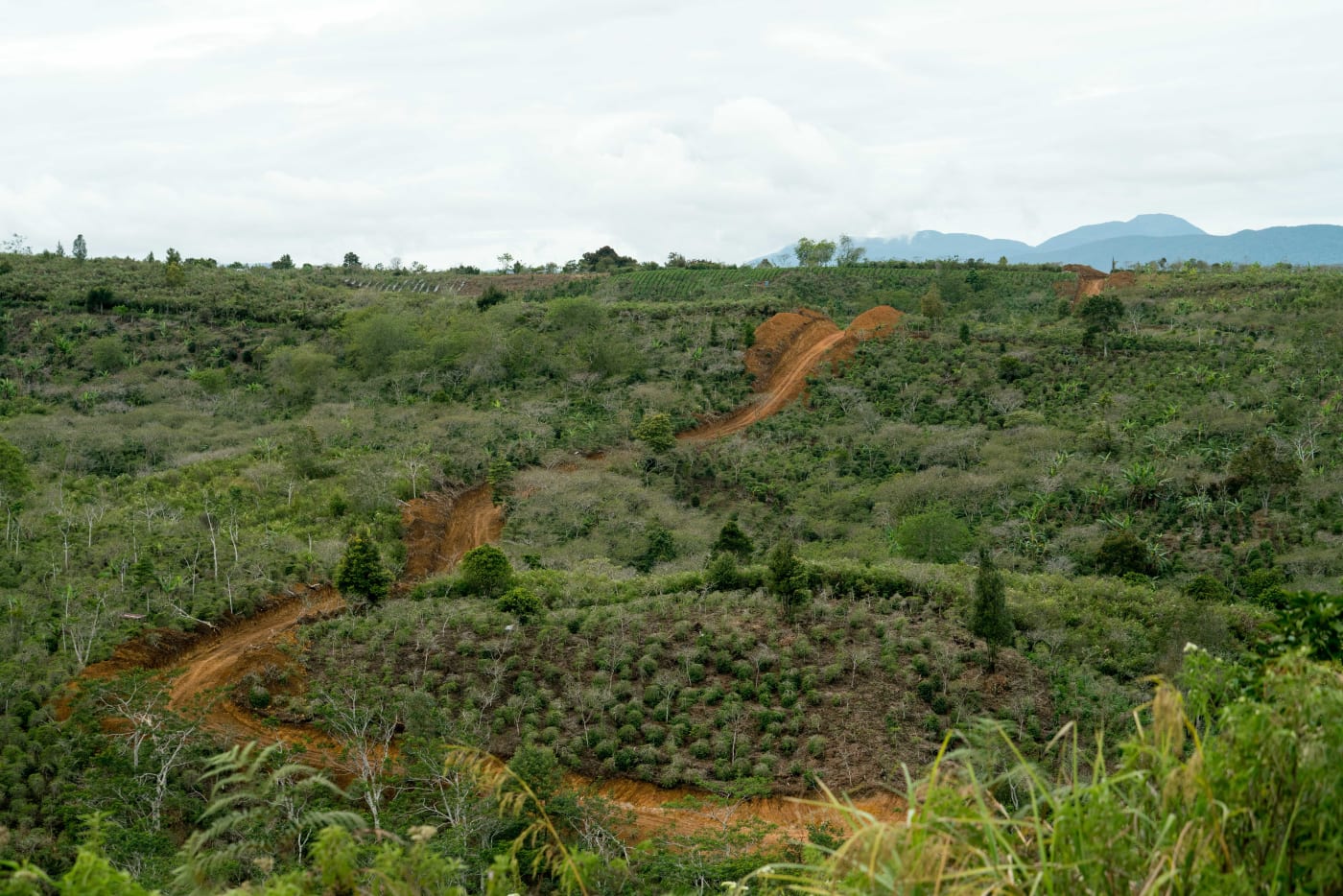
The Asman Gayo mill serves several small producers within the Pantan Musara villages who relocated there after a natural disaster in their hometown area and rebuilt their lives and farms with a new focus on coffee. Unlike most other Sumatran coffee receiving and processing centres, this mill produces washed and natural process coffees.
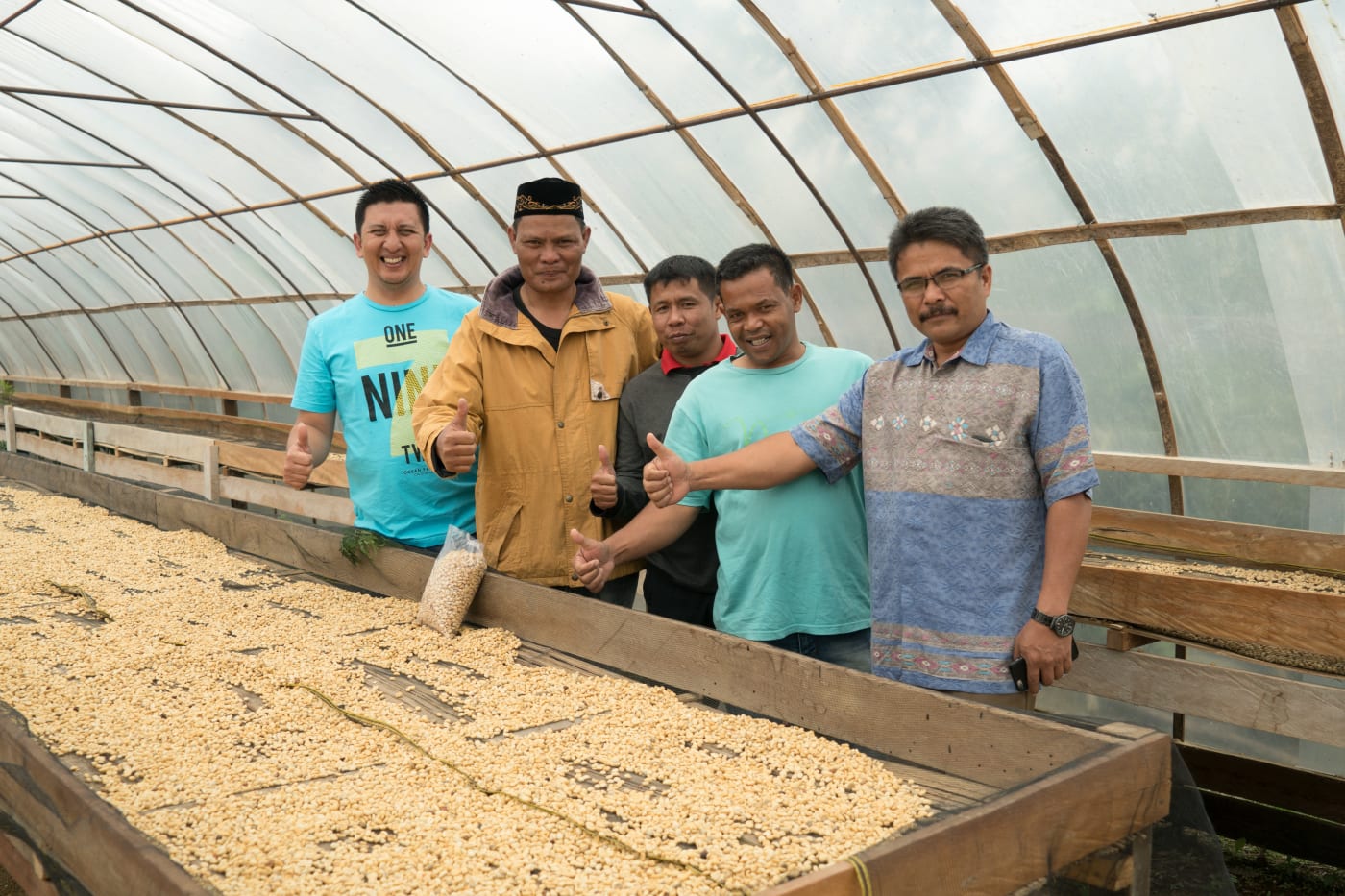
General info about Sumatran coffee
Before the 1970s, coffees in Sumatra were processed in the two most commonly found methods worldwide: washed and natural. In the 1970s, Japanese interest in Sumatran coffees led to the introduction of the ‘wet-hulled’ process (locally known as Giling Basah), a unique style of handling and drying. This process, together with the influence of the island’s climate and the features of the varietals, is largely responsible for Sumatran coffees’ unmistakable characteristics: earthy, savoury, somewhat vegetal or herbaceous flavours and a greenish-blue hue.
In Sumatra, coffee farmers will typically harvest their coffee cherries and depulp them by hand at their farm or home. The coffee then dries for a very short time and is brought either to a coffee marketplace or to a ‘collector’ or collection point, where the beans are purchased at anywhere from 30–50% moisture, with their mucilage still partially intact. The coffee is then combined and hulled (has its parchment removed) while it is still in this high-moisture state. The coffee is then dried to the more commonly globally accepted 11–13% moisture to prepare for export.
While there is some experimentation currently being done with large-scale washed coffee for export, most of it is for local consumption. The wet-hulled process was developed specifically to speed up drying and efficiency in a climate that sees heavy rain and clouds most of the year. Removing the parchment layer allows the coffee to dry much faster on patios or tarps even in these conditions.
Microlots from Sumatra are most commonly traceable to the mill level but occasionally traceable to the producer. Because of the generally small size of farms in Sumatra, most producers’ coffee is blended with that of other smallholders.
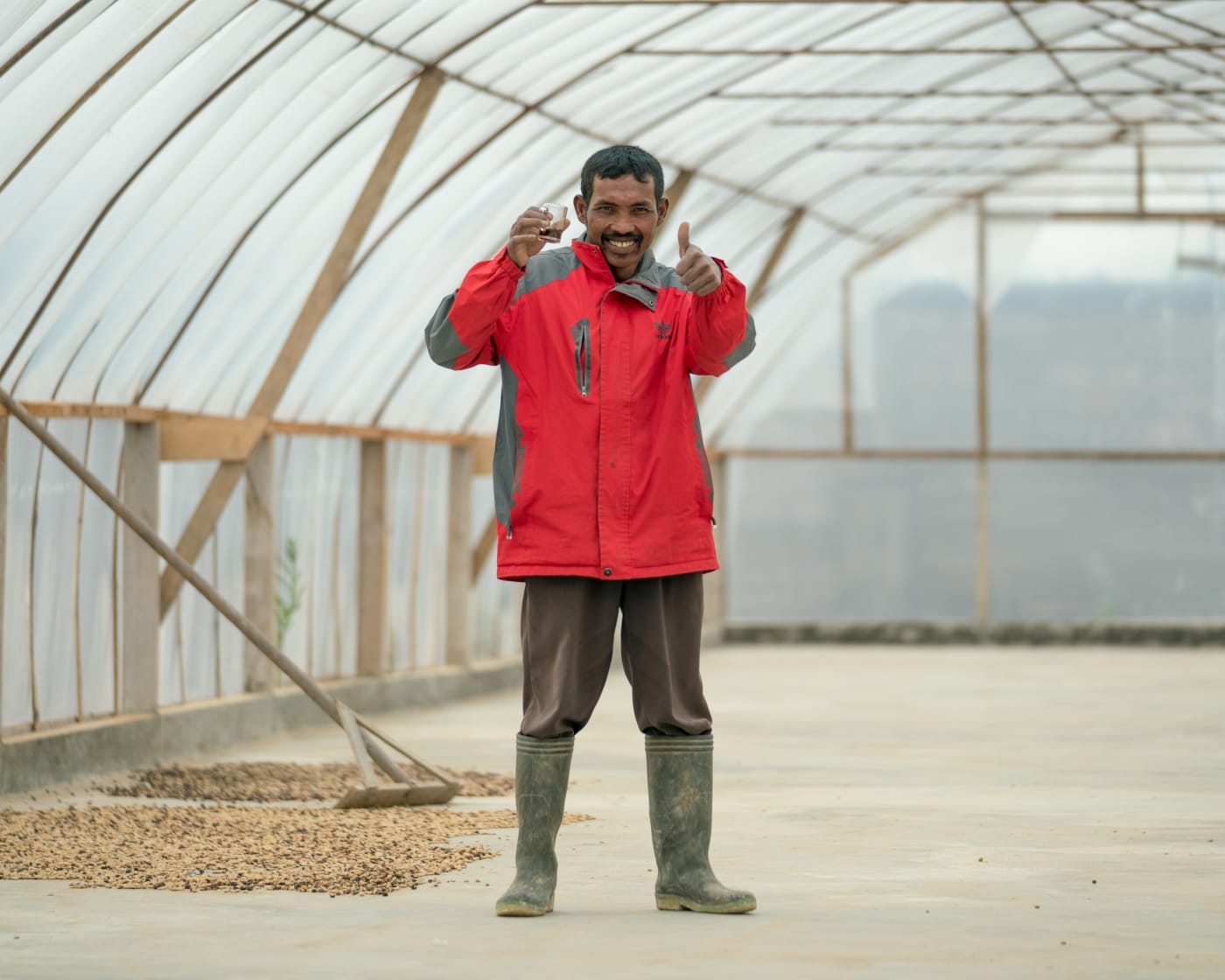
Due to the humid climate and cloud cover commonly found over the island of Sumatra, washed coffees are rarely produced. When they are, however, they are typically delivered to a central processing unit or mill in their cherry form, where they will be depulped and fermented in open-air tanks for up to 36 hours before being washed clean. Drying may occur on raised beds, parabolic or solar dryers, or tarpaulins.
Although this offering is not traceable to specific varieties, it is likely comprised of the most common varieties grown in Sumatra: Ateng, Bor Bor, Catimor, and Timor hybrids.
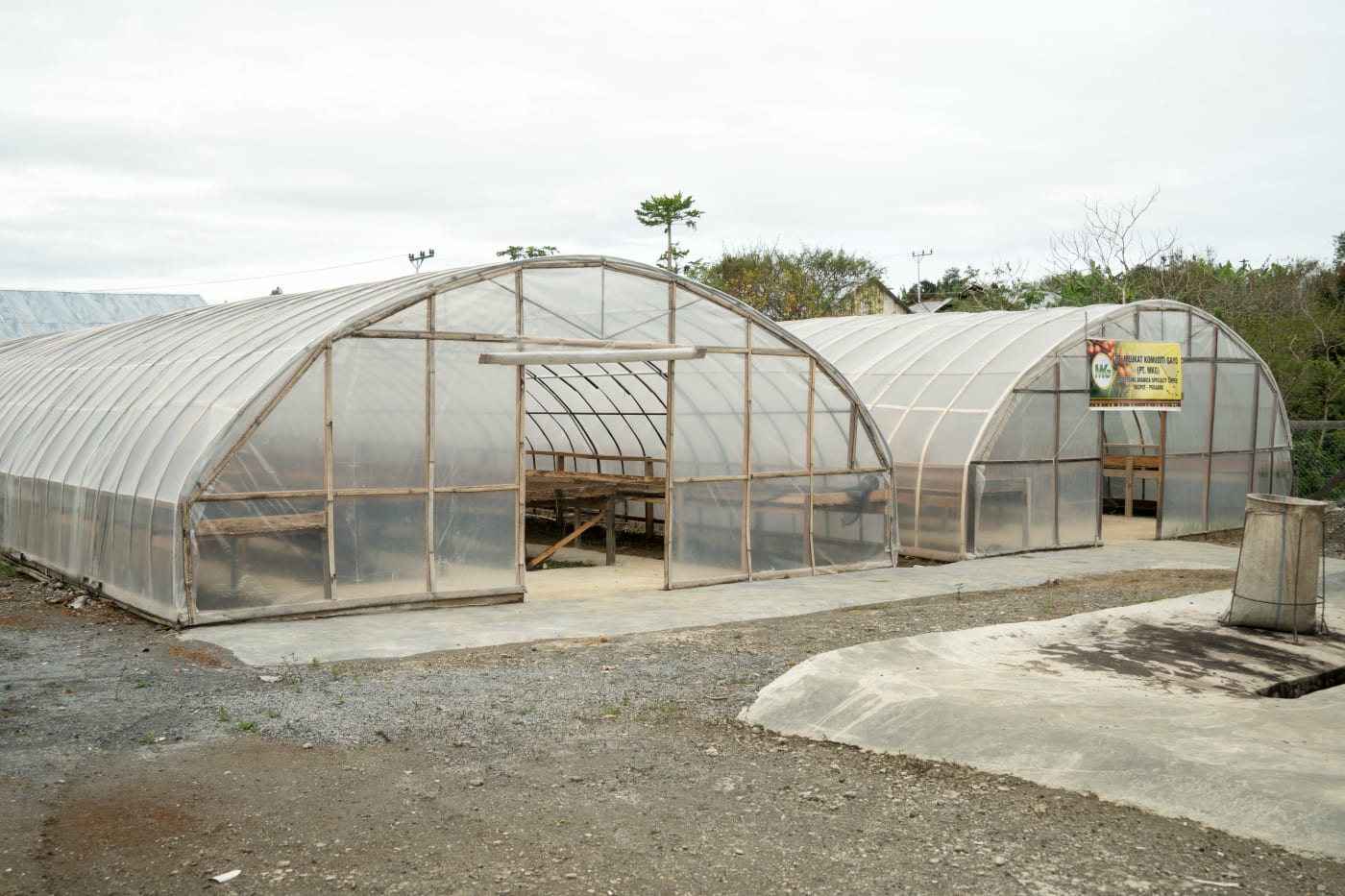
Learn everything about this coffee:
Ethical, traceable sourcing
This page has all the sourcing information (variety, process, region, story, importer, and more) that our importers share with us, and give us permission to use.
The transparency helps us talk confidently about the quality and background of our product, and it helps you know exactly what you’re buying.
Learn more:
Coffee page transparency legend
Our coffee philosophy
Our business approach
Fresh harvest coffee
We only source and roast coffee from each country’s latest harvest season (so the green coffee is never older than 1 year from the time of picking, processing and packing). This ensures the sensory qualities are always at their peak and unaffected by excessive ageing.
Roasted for espresso and filter (best enjoyed black)
Roast style: omni. Omni roasts are designed to brew and taste great both as espresso and filter. Our omni single origins generally sit on Agtron values in the ~70-60 value range. So, technically, they are somewhere in the lighter side of the medium spectrum.
Designed for espresso and filter brewing. Best enjoyed black.
Learn more:
Our Loring Kestrel S35 roaster
Our roasting style and approach
Best brewed within days 15-49 post-roast
The ‘fresh is best’ saying doesn’t apply to coffee (contrary to popular belief). Waiting before opening and brewing your bag of whole coffee beans helps develop peak flavour and acidity.
But heads up: if you buy pre-ground coffee, brew it as soon as possible.
Learn more:
Our recommended brewing window
Try our custom brewing recipes
Our recipes and ratios are tailored to our coffee sourcing and roasting styles, bringing the best flavour and feel out of each coffee.
For pour over, immersion, and other filter brewing styles, check our brew guides.
For our espresso single origins, we recommend a coffee:yield ratio of 1:3:
- Dose: 20g ground coffee
- Yield: 60g espresso
- Total brew time: ~24-28 seconds
This is just a starting point! We encourage you to experiment, taste, and adjust to find the recipe that you enjoy the most.
Learn more:
Our espresso brew guide (single origin)
Brewing ratio calculator
Packaging and sustainability
- Bags: ABA-certified home compostable (AS 5810-2010)
- Labels: recyclable
- Valves (only on +250g bags): general waste
- Box and tape (online orders): recyclable
Learn more:
Our packaging
Varieties
Ateng variety
Ateng is a commonly used name that describes Catimor varieties planted on Sumatra and other Indonesian islands.
Bor Bor variety
A name sometimes used in Indonesia to commonly refer to the Timor Hybrid varietal.
Catimor variety
A hybrid variety of the Caturra and the Timor Hybrid (resistant to coffee leaf rust due to its Robusta genetic roots).
Timor variety
Also sometimes called ‘Timor Hybrid(s)’.
According to World Coffee Research, “Timor Hybrid is a natural cross between C. arabica and C. canephora (Robusta) that appeared spontaneously on the island of Timor in 1920s. Its Robusta genetics conferred rust resistance into the variety.”
The location
Coffee from Indonesia
We’re still adding details for Indonesia – check back soon
The Aceh, Sumatra region of Indonesia
We’re adding details for Aceh, on the Indonesian island of Sumatra – check back soon
Farm processes
Washed process
Machines are used to remove the flesh from the coffee cherry before being fermented in water, washed again, and finally sun dried. This process tends to result in more distinct, cleaner flavours.

Subscribe to a world of coffee
Discover a new single origin coffee from Sample every 1-5 weeks with no delivery fees.
No up-front purchase, and you can pause, cancel, or change plans at any time.
Available to order online this week:

Kenya Karimikui
Flavours of blood orange, blackberry, plum jam
Body Acidity
Washed Batian, SL28, SL34, Ruiru 11
November 2024 harvest
Roasted omni for filter and espresso
Kenya Karimikui online
Peru Miguel Estela
Flavours of honeydew melon, white grape, marmalade
Body Acidity
Washed Marshell
August 2025 harvest
Roasted omni for filter and espresso
Peru Miguel Estela online
Colombia Rigoberto Chavarro
Flavours of brown sugar, wine gum, candied stone fruit
Body Acidity
Washed Pink Bourbon
February 2025 harvest
Roasted omni for filter and espresso
Colombia Rigoberto Chavarro online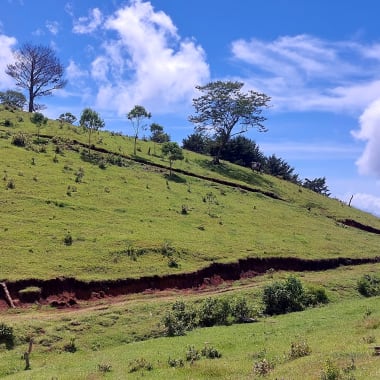
El Salvador Manuel Castañeda
Flavours of toffee apple, cranberry, dulce de leche
Body Acidity
Honey Pacamara
March 2025 harvest
Roasted omni for filter and espresso
El Salvador Manuel Castañeda online